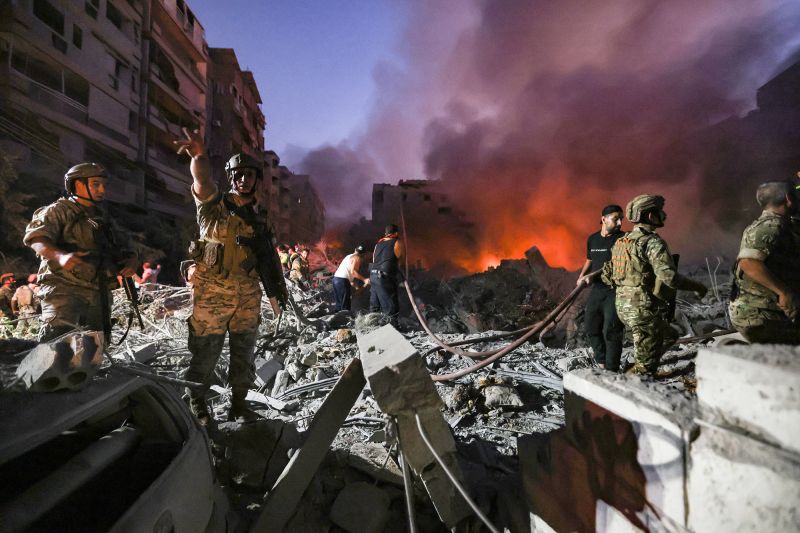
Hezbollah Deliberates New US-Israeli Proposal as Lebanon Ceasefire Talks Heat Up
The recent intensification of ceasefire talks in Lebanon is a clear indication of the delicate political situation unfolding in the region. Hezbollah, a prominent militant group in Lebanon, is currently considering a new proposal put forth by the United States and Israel. This development has triggered speculation and apprehension among various stakeholders involved in the conflict.
Hezbollah’s consideration of the new proposal is significant as it could potentially mark a turning point in the ongoing tensions in the region. The group’s role in Lebanon’s politics and its strategic alignment with nations like Iran and Syria have long been a cause for concern for the U.S. and its allies in the region, particularly Israel. The new proposal is seen as an attempt to mitigate these concerns and possibly pave the way for a more stable and peaceful environment in Lebanon.
The timing of the ceasefire talks is crucial, given the heightened tensions and conflicts across the Middle East. Lebanon, a country already grappling with political instability and economic challenges, cannot afford to be embroiled in further military confrontations. The international community, especially the U.S. and Israel, are keen to prevent any escalation of violence in the region, which could have far-reaching consequences.
Hezbollah’s willingness to engage in ceasefire talks and consider the new proposal reflects a pragmatic approach on its part. The group, known for its militant activities and anti-Israel stance, may be inclined to explore diplomatic options in order to secure its interests while avoiding further escalations. However, the complexities of the situation in Lebanon, including the involvement of multiple regional and international actors, make the path to a lasting ceasefire a challenging one.
The outcome of the ceasefire talks and Hezbollah’s decision regarding the new proposal will have significant implications for the region. A successful resolution could potentially reduce the risk of further conflict and improve the prospects for stability in Lebanon. However, failure to reach a consensus or a breakdown in negotiations could exacerbate existing tensions and lead to a renewed cycle of violence in the region.
As the ceasefire talks continue to unfold and Hezbollah weighs its options, it is essential for all parties involved to prioritize dialogue, diplomacy, and compromise. A durable resolution to the conflict in Lebanon can only be achieved through mutual understanding, respect for sovereignty, and a genuine commitment to peace. The international community, including regional powers and global actors, must support efforts to de-escalate tensions and foster a climate of cooperation in order to ensure a sustainable peace in the region.
